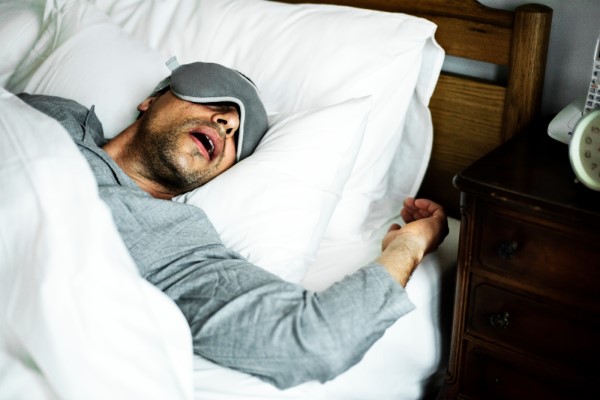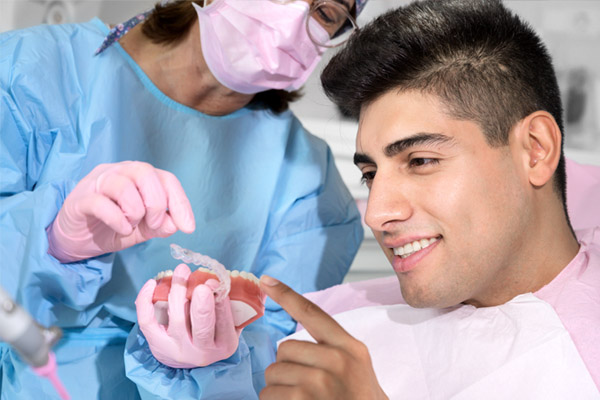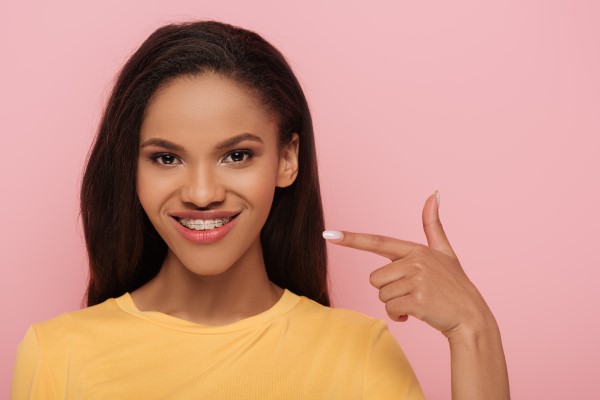Some Dentists Offer Sleep Medicine Treatment for Sleep Apnea

Dental sleep medicine treatment focuses on treating sleep apnea and other related conditions. More dentists are choosing to practice in this line of work because there are actually a lot of good dental sleep apnea treatments available to patients. Modern-day dentistry has evolved quite a bit, which has allowed for the evaluation of all kinds of approaches to treating conditions such as sleep apnea.
It can be helpful to learn more about what dentists are able to do for patients suffering from sleep apnea. This article outlines a dentist's role in dental sleep medicine treatment. Patients who are suffering from sleep apnea or other related conditions may find this article to be helpful.
Do dentists offer sleep medicine treatment for sleep apnea?
In short, yes. However, it can be helpful to know what type of sleep medicine treatment they can offer. Want to know more? Keep reading to find out as we dive into everything that there is to know about a dentist's approach to sleep medicine.
Understanding sleep apnea
First and foremost, it is ideal to have an understanding of what sleep apnea actually is. There is a common misconception that if one snores, they automatically suffer from the condition; however, this is not actually true.
Sleep apnea is a serious disorder in which one stops breathing on and off throughout the night, while unconscious. The airway tends to become obstructed, which is what causes this cessation in breathing.
If sleep apnea goes untreated, the results can be quite serious, which is why it is crucial to visit a professional as soon as symptoms or warning signs are noticed. These include waking up with dry mouth or a sore throat, excessive tiredness, loud snoring, or abruptly waking up with shortness of breath.
Mandibular advancement devices
A mandibular advancement device, also known as a MAD, is one of the most popular ways that a dentist chooses to treat sleep apnea. This sleep medicine oral appliance looks very similar to a mouthguard or nightguard; however, it is custom-made specifically for sleeping purposes. Like a mouthguard, the MAD sits over the upper and lower arches of teeth. On both ends of the piece are small metal hinges that help move the jaw forward.
The repositioning of the mouth helps keep the airway open while the patient is sleeping, which can help avoid breathing difficulties that arise. Over time, resolving these breathing difficulties will help the patient avoid sleep apnea troubles.
Tongue-retaining devices
Another sleep medicine treatment that dentists can offer to patients suffering from sleep apnea is a tongue-retaining device. This oral splint looks very similar to a pacifier, except it has a hole right in the middle. The hole is a special spot for the tongue to rest while the patient is sleeping. With the tongue held in this position, it is much less likely that the patient's airway will become obstructed, thus preventing sleep apnea symptoms from occurring.
Sleep medicine treatment from a dentist
More and more dentists are beginning to specialize in sleep medicine treatment. This field is especially important because so many people suffer from sleep apnea, which can be a very serious condition. The addition of dentists to the field has allowed for further advancements that can help patients sleep through the night without experiencing an obstructed airway.
Both mandibular advancement devices and tongue-retaining ones have proven to be successful for patients who struggle with other methods of sleep medicine treatment. CPAP machines, medications, and lifestyle changes are additional options that work for treatment. CPAP machines tend to be administered by medical professionals as opposed to dentists. However, certain lifestyle changes can be recommended by either. These may include the following:
- Reduce alcohol consumption
- Eliminate smoking tobacco products
- Eat a diet rich in vegetables and fruits
- Sleep on your side as opposed to on your back
- Exercise regularly
- Pursue weight loss
- Practice breathing through the nose instead of the mouth
Of course, these tips alone will not eliminate sleep apnea; however, when done in conjunction with an oral device, the chances are much higher of reducing the associated symptoms.
Find out more today
Want to know more about sleep medicine treatment from a dentist? Whether you are suffering from sleep apnea or another type of sleeping disorder, our team can help! Reach out to one of our sleep medicine dentists so that we can get you started with a treatment plan. Give us a call or stop by our office today.
Request an appointment here: https://www.carolinasmilesdentist.com or call Carolina Smiles Family Dental at (828) 974-3326 for an appointment in our Brevard office.
Check out what others are saying about our dental services on Yelp: Do I Have Sleep Apnea in Brevard, NC.
Recent Posts
Snoring is not the only sign of sleep apnea. It is a significant sleep condition that may have a negative impact on your health and quality of life in a short amount of time. Aside from feeling tired and drowsy throughout the day, untreated sleep apnea makes you vulnerable to different major health problems, including…
Sleep apnea is a fairly common medical condition that affects millions of Americans every day and, in some cases, can have life-threatening side effects. To get the right kind of help for your apnea, it first helps to understand the causes of this sleep condition, what the different causes mean for treatment, and how you…
Sleep apnea can lead to more serious health conditions. This sleeping disorder can cause heart disease and high blood pressure. Breathing pauses while sleeping at night can result in daytime tiredness and fatigue. Treating this disorder can improve a person’s health and well-being. If you want to know the available treatments for sleep apnea, here…
A large number of the world's population suffer from a condition known as sleep apnea. In fact, it is so common that many physicians are able to diagnose obstructive sleep apnea using either an in-lab sleep study or a home test. These tests require a board-certified sleep physician who has both the training and the…


